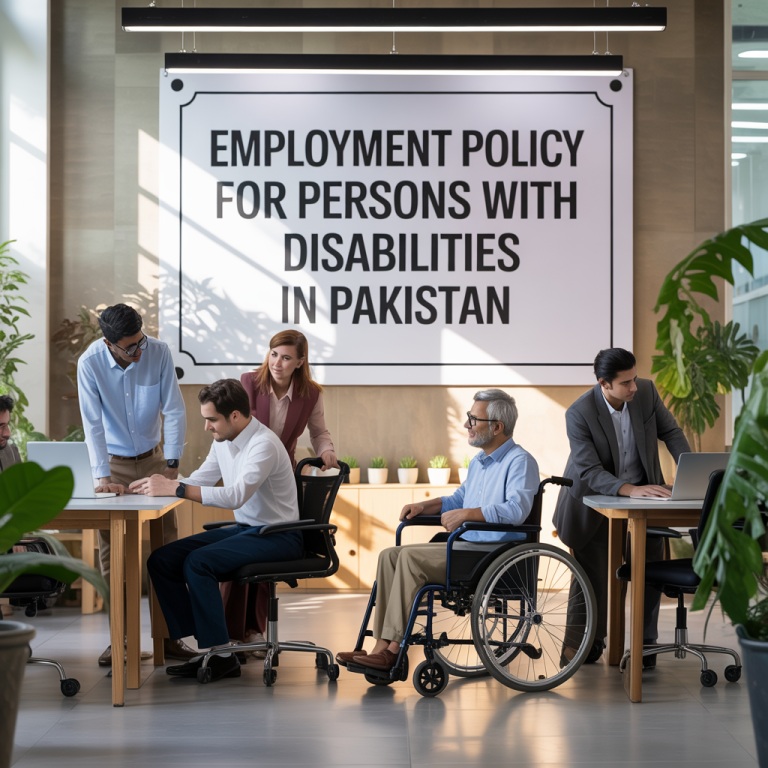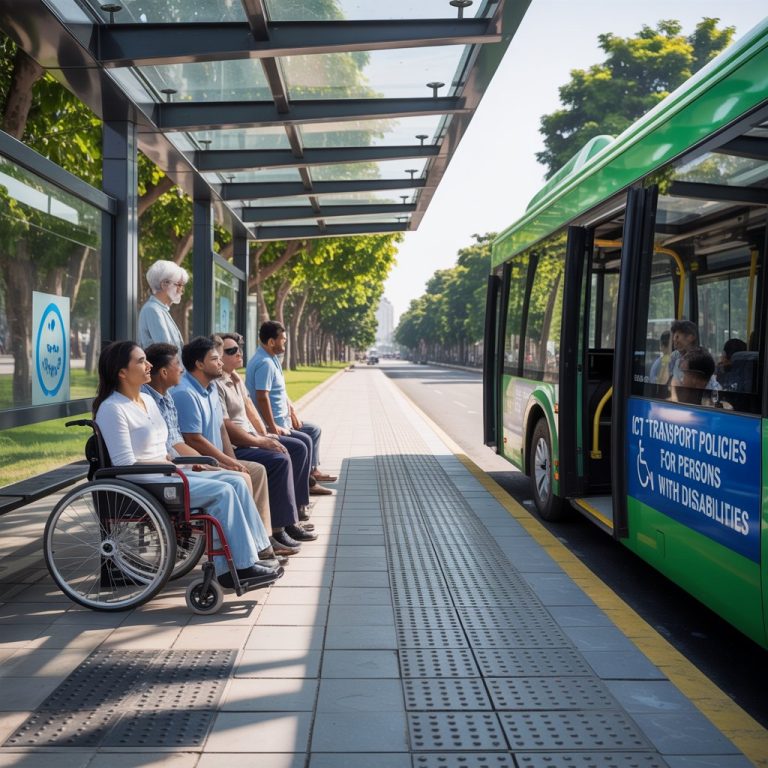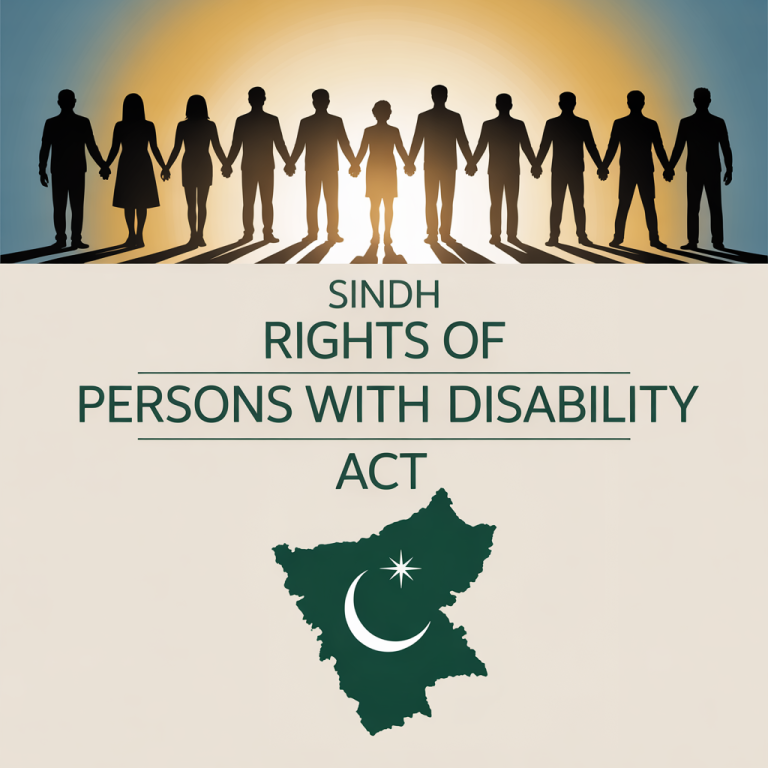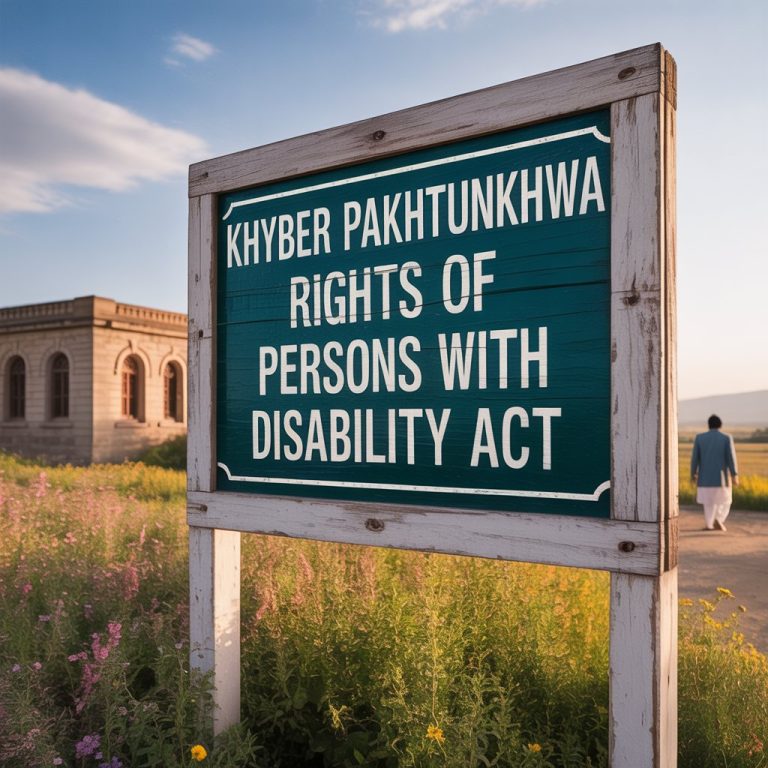ICT Rights of Persons with Disability Act
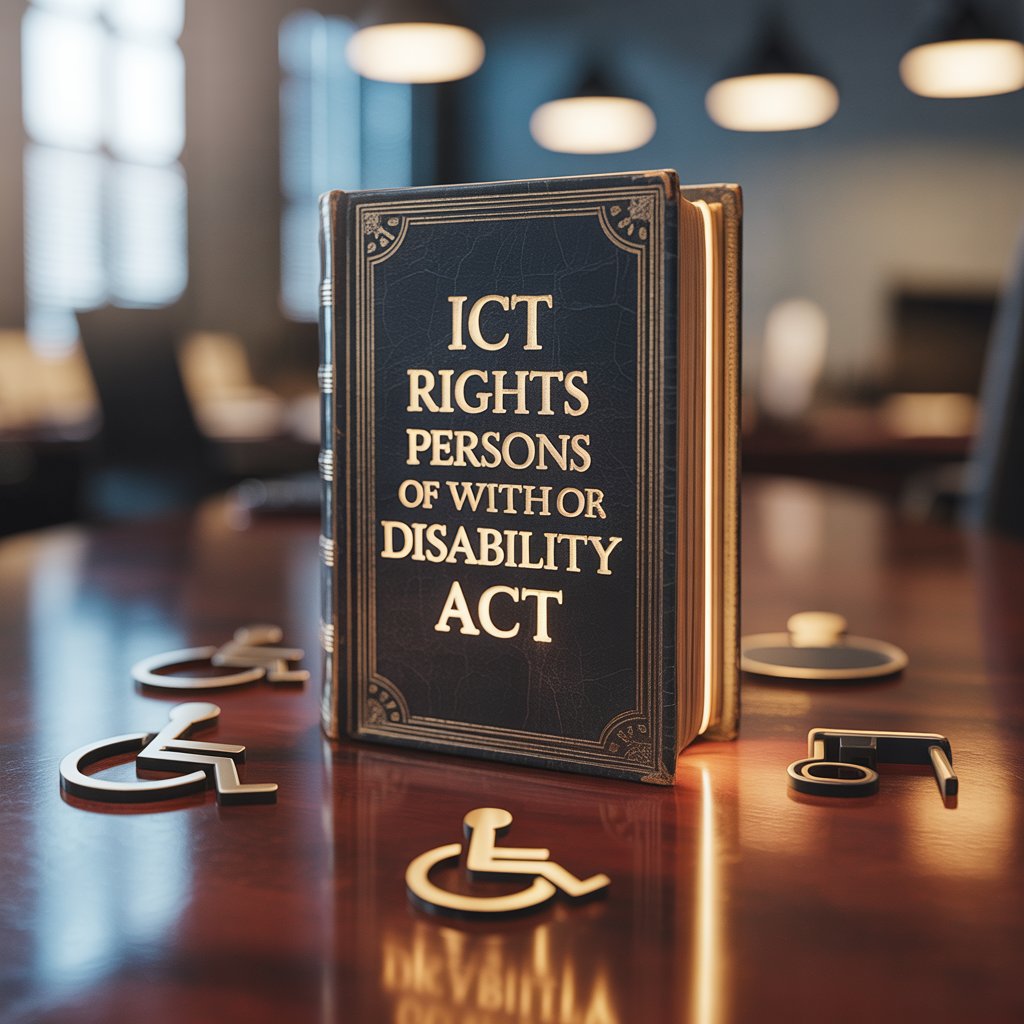
In a landmark development for human rights in Pakistan, the Islamabad Capital Territory (ICT) Rights of Persons with Disability Act, 2020 was passed to uphold dignity, ensure accessibility, and promote inclusion for persons with disabilities (PWDs). This progressive piece of legislation is a direct response to international commitments under the UN Convention on the Rights of Persons with Disabilities (UNCRPD) and reflects Pakistan’s efforts to transition from tokenism to true empowerment.
Let’s explore how this Act addresses inclusive education, accessible infrastructure, legal safeguards, and more for PWDs within the capital territory.
Why the ICT Disability Act Was Needed
Before 2020, Pakistan’s disability-related policies were scattered, outdated, and limited to outdated medical definitions. The Disabled Persons (Employment and Rehabilitation) Ordinance of 1981 lacked enforceability and failed to reflect the rights-based approach championed by the UNCRPD, which Pakistan ratified in 2011.
The ICT Act was essential to:
- Align federal policies with international standards
- Move from a charity model to a rights-based model
- Ensure enforceable legal protections and access mechanisms
Legislative Journey and Background
The Act was drafted through consultation with:
- Disabled Persons Organizations (DPOs)
- Human rights commissions
- Legal experts and social activists
It was passed by the National Assembly in 2020 after robust debate, marking a major milestone in inclusive governance.
Core Principles of the ICT Disability Act
The Act is built on several foundational principles:
- Equality and non-discrimination
- Respect for inherent dignity
- Full and effective participation in society
- Accessibility and reasonable accommodation
- Freedom to make life choices independently
These align directly with key provisions of the UNCRPD, especially Articles 3 and 4.
Who Is Covered Under the Act?
The Act defines disability in line with the biopsychosocial model, covering:
- Physical disabilities
- Sensory disabilities (hearing, vision)
- Intellectual and developmental disabilities
- Psychosocial and neurological conditions
It ensures that every individual who meets the medical and social criteria has equal rights and protections under the law.
Institutional Framework Created by the Act
The Act established the Council for the Rights of Persons with Disabilities, tasked with:
- Advising the government on disability policy
- Overseeing implementation
- Registering complaints
- Ensuring inter-departmental coordination
This Council is meant to be inclusive and representative, including at least 30% members from DPOs.
Right to Inclusive Education in the ICT Act
Education is one of the cornerstones of this legislation. It mandates:
- Non-discriminatory admissions for children with disabilities
- Availability of trained teachers and resource centers
- Curriculum adaptation and sign language support
- Removal of physical and digital barriers in educational institutions
No school—public or private—is permitted to deny admission on the basis of disability.
Accessibility Obligations Under the ICT Disability Act
The law obliges both public and private sectors to make spaces accessible. This includes:
- Government buildings to have ramps, tactile guides, accessible toilets
- Transport facilities to accommodate wheelchairs and audio-visual aids
- ICT systems like websites, mobile apps, and ATMs to follow international accessibility standards
Failure to comply within the stipulated timeframe can result in fines and other penalties.
Legal Safeguards and Protections
The Act introduces strong anti-discrimination clauses, prohibiting:
- Denial of public services
- Harassment in the workplace
- Discriminatory hiring or firing
Victims can file complaints with the Disability Rights Council or directly approach the Human Rights Commission of Pakistan.
Rights of Women and Children with Disabilities
Recognizing intersectional discrimination, the Act provides extra protections for women and children, including:
- Protection from gender-based violence
- Rights to reproductive health
- Inclusive child protection services and education access
Employment Rights Under the ICT Act
The law reinforces:
- Minimum 2% employment quota in public sector jobs
- Incentives for private employers to hire PWDs
- Mandates for workplace accessibility and assistive technologies
Employers failing to meet quotas are subject to penalties and corrective actions.
Healthcare and Rehabilitation Provisions
The Act requires:
- Free or subsidized assistive devices
- Access to inclusive and accessible healthcare
- Provision of mental health and rehabilitation services
PWDs must receive care in the least restrictive environment possible, respecting autonomy and consent.
Access to Justice and Legal Capacity
PWDs are entitled to:
- Equal treatment in courts
- Legal guardianship support if needed
- Assistance in filing complaints and participating in legal proceedings
The Act recognizes full legal capacity of PWDs unless a court determines otherwise based on specific evidence.
Public Awareness and Sensitization Mandates
Public and private institutions must:
- Conduct regular awareness campaigns
- Include disability awareness in school curricula
- Train staff in inclusive practices
Inclusive language and respectful interaction are emphasized throughout.
Coordination with UNCRPD Principles
The ICT Act mirrors the UNCRPD in:
- Structure
- Terminology
- Guiding values
It serves as a domestic instrument to fulfill international obligations, particularly Articles 5–9, 24–27, and 33.
Monitoring and Implementation Mechanisms
Implementation is overseen by:
- Disability Rights Council
- Ministry of Human Rights
- District-level committees
These bodies are required to:
- Submit annual reports
- Monitor compliance
- Hold public consultations
Penalties for Non-compliance
The Act introduces enforceable penalties:
- Fines of up to Rs. 500,000 for institutions
- Criminal liability for abuse, exploitation, or negligence
- Legal remedies for victims
This represents a shift from symbolic to substantive accountability.
Progress Since Implementation
- Launch of a Disability CNIC registration drive
- Accessibility audits of schools and government buildings
- Increased collaboration with DPOs for policy rollout
Challenges in Implementation
Despite its promise, the Act faces hurdles:
- Limited funding and human resources
- Lack of awareness among local administrators
- Resistance from traditional institutions lacking inclusivity
Role of Civil Society and DPOs
Organizations like STEP, NOWPDP, and Milestone have:
- Trained staff
- Conducted legal literacy workshops
- Monitored implementation at the grassroots level
Their engagement is critical for success.
Comparison with Provincial Disability Acts
| Province | Act Enacted | Key Features |
|---|---|---|
| Sindh | 2018 | Disability Authority, strong quotas |
| Punjab | Draft stage | Lacks enforcement power currently |
| KP & Balochistan | Draft & pending | Need comprehensive frameworks |
The ICT Act is comparatively more rights-based and enforceable.
Judicial Interpretations and Case Law
The Islamabad High Court has taken suo motu notice in cases related to:
- Employment quota violations
- School accessibility
- Disability CNIC delays
Judiciary is playing a key role in bringing visibility to the Act.
Digital Inclusion Under the ICT Act
The law mandates:
- Accessible websites for all government departments
- Inclusive e-learning platforms
- Digitally adaptive tools like screen readers, voice recognition, and captioning
The Ministry of IT is tasked with ensuring compliance.
Inclusive Disaster and Emergency Planning
PWDs must be:
- Included in disaster risk reduction (DRR) policies
- Provided with accessible emergency alerts
- Given priority during rescue and relief efforts
This was especially relevant during COVID-19, highlighting systemic gaps.
Disability CNIC and Registration Provisions
The Act formalizes:
- A centralized PWD registry
- Disability CNICs linked with services like healthcare, transport, and education
- E-verification through NADRA portals
Cross-Sectoral Responsibilities of Government
Every ministry—from Education to Health, Transport, and Housing—must mainstream disability considerations into planning, budgeting, and implementation.
Future Amendments and Proposed Reforms
- Inclusion of neurodivergent and invisible disabilities
- Stronger private sector compliance enforcement
- More budgetary allocations for rehabilitation centers
International Best Practices Reflected in the Act
Countries like the UK, India, and the USA inspired elements like:
- Anti-discrimination frameworks
- Accessibility audits
- Inclusive legal definitions
Citizen Role in Enforcing Disability Rights
Citizens can:
- Report violations
- Support disability inclusion campaigns
- File Right to Information (RTI) requests on Act implementation
Conclusion: A Milestone in Disability Rights Legislation
The ICT Rights of Persons with Disability Act, 2020 is more than a legal document—it’s a manifesto for dignity, equity, and social justice. It recognizes the potential of every citizen, regardless of ability, and sets Pakistan on a promising path toward a fully inclusive future.
Yet, laws are only as powerful as their enforcement. With coordinated effort—from state actors, civil society, and citizens—this Act can truly transform lives and ensure no one is left behind.
FAQs
Who is eligible under the ICT Rights of Persons with Disability Act?
All persons with physical, sensory, intellectual, or psychosocial disabilities residing in Islamabad.
Does the Act ensure job opportunities for PWDs?
Yes, it mandates at least a 2% employment quota and workplace accommodations.
Are private institutions required to comply?
Yes, all private schools, employers, and transport providers must adhere to the Act.
Where can complaints be submitted under this Act?
To the Disability Rights Council or the Ministry of Human Rights.
Is inclusive education mandatory under the Act?
Absolutely. Schools cannot deny admission based on disability.
What’s the role of DPOs in implementing this Act?
They assist in monitoring, advocacy, training, and filing legal complaints.

